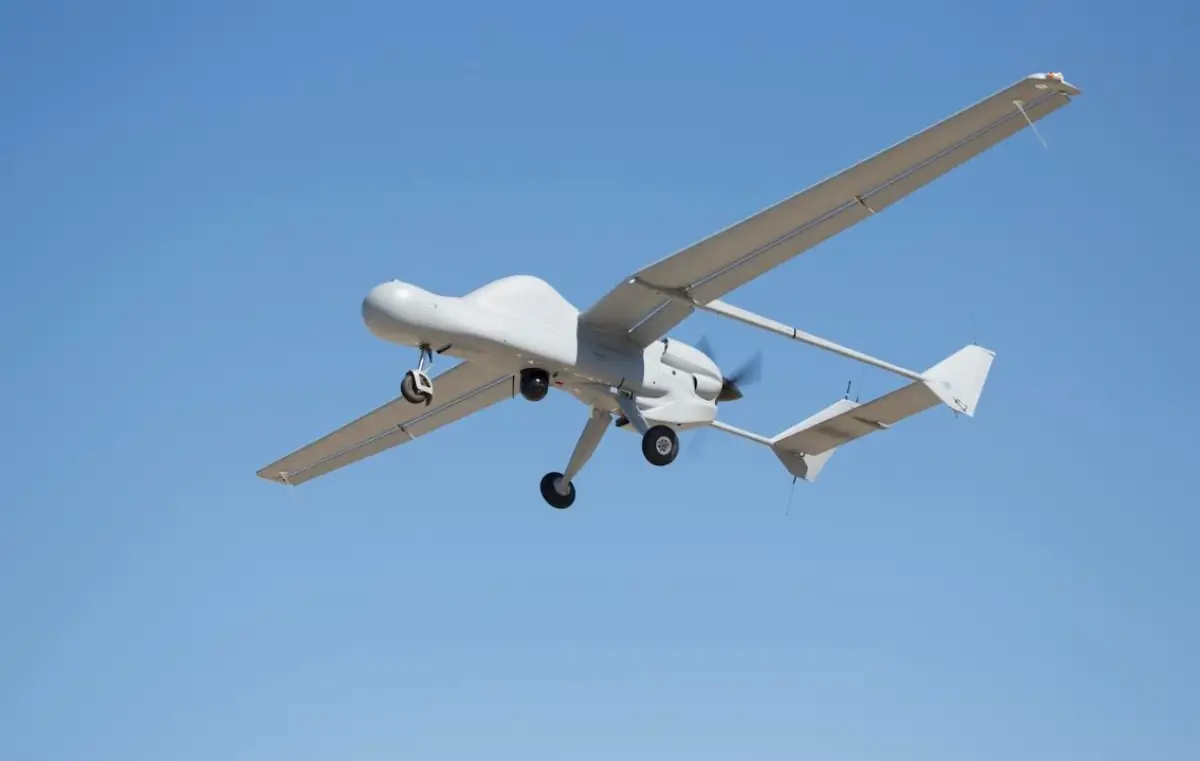
Telespazio Iberica and Leonardo: contract to counter forest fire on Canary Islands
By the Falco Evo, remotely piloted aircraft

Telespazio Ibérica, a reference company in geo-information in Spain, and the industrial group Leonardo, a global player in Aerospace, Defense and Security (AD&S), will work together to protect the Canary Islands by utilizing the Falco EVO, a state-of-the-art remotely piloted aircraft crucial to counter fire and for the preservation of biodiversity.
The signed contract, which includes 700 operational flight hours, will allow the Falco EVO to be used in the Canary Islands throughout the year, strongly emphasizing the summer season. The agreement was signed during an official event at the Fuerteventura Technology Park, attended by the Canary Islands Government President, Fernando Clavijo. The event hosts included the Senior Vice President of Sales of Leonardo Aircraft Division, Alberto Pietro Berruti, and the CEO of Telespazio Ibérica, Carlos Fernández de la Peña.
This contract, unprecedented in Spain, is part of the actions promoted by the joint venture led by Telespazio Ibérica and Pegasus Aero Group since March of last year - when they became strategic partners of the Government of the Canary Islands. In fact, at the end of 2024, they appeared to be the first blazes monitored by drones.
The Falco EVO, which will land in the Canary Islands in the coming months, coinciding with the start of the fire season, is a remotely piloted aircraft with a wingspan of 12.5 meters by 6.2 meters long and 2.5 meters high. It has an endurance of more than 20 hours of continuous flight at a maximum altitude of 6,400 meters and a maximum load capacity of more than 100 kilograms.
Due to its characteristics and the integration between the nose camera, maps and automatic flight mode, the Falco EVO is fully operable day and night in rain, wind, and extreme temperatures, between -40ºC and 50ºC, both on the ground and in flight.
The aircraft will provide real-time data gathered by its onboard payloads to the Geo-Information Centre (GIC). There, the information, such as electro-optical, infrared, and radar images, will be processed in an automated way by trained and validated artificial intelligence algorithms. Based on this data, emergency services can make the best decision during a catastrophe.
These characteristics make it an essential tool for monitoring flames, detecting new outbreaks and coordinating with emergency teams to extinguish fires, including sixth-generation fires, which have become increasingly frequent in recent years, more intense, faster and unpredictable.
Phenomena such as rising temperatures, drought and poor biodiversity management have made it difficult to manage these fires, which is why innovative technological solutions such as drones, aeronautical and aerospace vehicles such as pseudo-satellites (HAPs and MALE) and satellites are needed.
The versatility of Falco EVO and the experience gained from the design of intelligence, surveillance, and reconnaissance capabilities, and the related integration of dedicated payloads translate into an ideal solution for monitoring vast territories and extensive maritime areas. This enables targeted and timely interventions, even in adverse operational and environmental conditions, and allows interoperability with surface command centers and other aircraft, whether operated by onboard crews or remotely piloted.
In addition, this aircraft has successfully assessed damage caused by meteorological events or other natural disasters, such as volcanic eruptions and floods, and for border and coastal control in the Mediterranean Sea.
AVIONEWS - World Aeronautical Press Agency